FaceReich
- Alexandre Richard

- Sep 30, 2018
- 9 min read
With this article, I’d like to study the behaviors of companies like Facebook and Instagram who now operate as Supra-States, meaning they spread influence and beliefs above political and geographic States/ Nations as we know them.
More specifically, I’d like to take a closer look at the ways in which they push through their curation and content a very American agenda (be it in social or political terms). Within this, I’m interested to see how host/ foreign users (as in “non-American users on the receiving end”) deal with this pervasive influence.
PURITANISM
Deemed unholy by Facebook: (left) Gustave Courbet, L’Origine du monde, 1866, (right) Veenus of Willendorf, 24 000–22 000 before J.-C.
The ban of the painting The Origin of the World has generated a strong outcry back in the days. It was the patient zero of a more systematic ban applied by Facebook and Instagram on anything that would be deemed “unholy” by American standards. Namely: tits (for Females only – of course) and genitalia. This comes from the country that’s the #1 producer of porn globally and chooses as icons Nicky Minaj and Cardi B (who are not exactly demure).
Two FB & IG compliant posts: (left) Nicky Minaj, (right) a tasteful post by modern days' Audrey Hepburn, Cardi B.
This didn’t really fly in France. A country that’s very free when it comes to body image and depiction of nudity. A country where being topless on a beach was frequent for women up until a decade ago.
The irony of platforms like Facebook or Instagram is that even though you don’t agree with their standards, it’d be social suicide for many to flee both of them. Quite a few did, sure. But more interestingly, French users took a bypass to this censorship. And as for most instances of Prohibition across history, this led to great new forms of creativity.
New outlets of sexual expression in France
Vintage erotica
Post ban, this type of French accounts have been booming locally on IG, especially with people aged 18 to 30yo. Far from American tactics that use a nano-meter pixel on one's private parts to avoid censorship, the French way revives a 70s photography and shooting style, playing hide and seek with the camera, being highly suggestive without showing the forbidden fruit. Just like the difference between French porn and American porn, the image is never perfect. Photos have a certain grain, they use blurriness, enticing crop-outs.
Arousing normalcy
Placing utterly sexual messages or objects in contexts that visually look overly normal, to the point of boring.
Wording
It's ironic how words have sometimes become more sought-after than flashy images on a platform like IG. From left to right: (1) "The one who gives head get to pick the movie on Netflix", (2) "Premium pussy", (3) "She was as beautiful as a princess who gives good head"
Allegory
No comments needed.
VERDICT ON PURITANISM: A+. Far from having worked, the ban led to a very prolific form of expression and new art forms in France.
"WHITE SUPREMACY"
France is working really hard to make race a non-topic. While Anglo-Saxon nations work equally hard to make it a topic. A professional anecdote of mine should help bring my point across:
As a researcher, I work mostly with international clients (with a strong share being American or British). When recruiting participants for ethnographies or focus groups, both these nations ask me specifically to recruit people based on their ethnicities to ensure we meet certain quotas. Now the interesting part is that… it is prohibited in France.
This observation is dear to my heart because I think it’s culturally enlightening. Both camps approach this the way they do to avoid being racist:
The US and the UK: by imposing quotas. Their rationale is that everybody will be represented.
France: banning the idea of putting people in boxes based on the color of their skin. As a side story, it is also prohibited in France to do a population census recording people’s ethnicity.
It’s interesting to me because intellectually, I think I can see how both are valid constructs.
This intro to explain my biggest shock on Facebook. I woke up one day, opened my Facebook, and had to sign a waiver saying that I understood I would be banned from the platform for life should I display an excessive pride in being White and encouraged White Supremacy.
Cutting to the chase: “White Supremacy” (linked to “White Separatism” in the US) simply does not exist as a concept in France! Just like the concept of “White Pride” is not a thing.
It’s a typical case of Facebook cutting and pasting a domestic political stance onto other cultures without a hint of nuance or cultural investigation. I don’t think many noticed what the waiver was about – probably because the concept does not make sense here, or because just like for iOS updates, we don’t bother reading – but all current users had to agree to it.
The part that annoys me is that a multinational company shaping thoughts and behaviors clearly called out a specific ethnicity and put limits to what it could and could not do. Again, I’m saying this from a French perspective only and am very aware that the fight against White Supremacy actually means something strong and important in the US.
It's not a case of (A) "Facebook's move on White Supremacy" led directly to (B) "local mayhem", far from it. That'd be ludicrous.
Yet, I noticed that quite a few things changed in France after that. Not that Facebook is the only culprit, but they left a few proofs behind them. For instance, we inherited overnight the concept of "White Privilege" ("privilège blanc"). I never saw it before expressed as such, it's a direct import, and I have seen it burgeoning on the platform ever since.
Many locals have directly taken ownership of this American construct to build their case and have their voices heard in France. What bothers me is that the context is vastly different and I always take with caution recuperation of ideologies, whichever side they emanate from.
"Blackface" - Ban on Classic Arts
In March 2019, the very renowned university La Sorbonne was about to stage the Antique play "Les Suppliantes" from Eschyle. The stage director decided to respect the Antique tradition of the play whereby actors painted their faces darker to better distinguish Greeks from Egyptians. The play was successfully banned, leading to a phenomenal outcry from artists, intellectuals, and a fair part of France.
Why is this in this article? Yet again, we inherited - mostly via social media - a social construct that was directly imported from America. As a proof, activists who managed to kill an Antique form of theater are using the term and hashtag "Blackface" in English. It's opened a Pandora box where Caucasians were using their "privilege" (sic) to mock African descent. I'm not even going to go into the difference between Egyptians and what people have in mind when they use the term "black". Nor will I question the link between French colonialism and the story behind the play of Eschyle.
Now back to FB's and IG's policy, the opposite ("White Face") is of course totally okay.
"White Face" nightmare - IG
Caption: "Imagine you go to bed Black and wake up White". Scene two, looking at his crotch "oh no, my big anaconda is gone..."
Where is this taking us? And is there a counter reaction?
"Weak Whites"
There is a derogatory term to refer to Caucasian people in France: "babtou". It's often attached to the adjective "weak" ("fragile").
It's meant to refer to a race that is seen as overly sensitive, incapable of defending itself or its interest, not worthy of respect.
It's very emerging, but a few elements of culture show Caucasian French wearing this as a badge of honor, trying to turn the insult on its head. (the image on the right is from one of those IG accounts).
Hyper White brands
It's far from being mainstream but we're starting to see hyper-targeted brands advertising on IG and FB. They're pretty subtle because their positioning needs to be read between the lines. I'm mostly thinking about "Une certaine idée de la France" ("a certain idea of France"). The line is actually borrowed from De Gaulle who used it back then to present France as creative, visionary and progressive. The clothing line looks very vintage - its anchorage is in the 30s. All models are White and the setting takes us back to a very post-card depiction of France.
I have lots of other examples in mind but could not include pictures as the accounts in question have been deleted or banned on FB/ IG in the meantime. This brand hasn't as it is sufficiently subtle to pass through the net.
Many similar examples can be seen in the streets looking at people's outfits and reading captions directed to insiders.
VERDICT ON "WHITE SUPREMACY": I honestly hate writing on that type of matter publicly as it's not fun and it's a social cut-throat to bring up the topic. While FB and IG are far from being the sole culprits, their role in igniting a massive flame pulling apart French communities based on hashtags and buzzwords that are American is undeniable.
(BODY) POSITIVITY
This one shall be more fun to cover. Again, the term is directly used in English in France and has been extremely present on FB and IG over the past 2 years. There is however a strong delta in terms of how far the trend goes, notably in depiction.
This is the US version:
And this is as far as France will go:
This series of ads is from the brand Le Slip Français. The model is beautiful and flawless. The execution feels somewhat "body positive" by French standards as the model hasn't been retouched. But it's easy to argue that this woman fits all standards of traditional beauty.
As often, the US haven't approached this movement half-way. Their idea and depiction of "Body Positivity" aims to promote beauty across all sizes, ethnicities, handicaps and sexual orientation - and aren't afraid to put them all on the same level.
I honestly think that the American trend and subsequent depictions are very well welcomed by many French users (even though our own depictions/ productions vastly differ). It’s culturally refreshing. It’s reassuring to see people who do not tick the boxes of Idealized Beauty behaving freely and apparently feeling good in their skin.
But the cultural transplant has only been partially effective here.
A simple look at our ads or at French women walking in the streets shows that this is as far as it goes (for now at least). I’m not a Female myself but it’s transparent there is a certain rigor to what a woman should and should not be/ look like in France. And I truly feel it is strongly backed up and fueled by women themselves. Looking unkempt is quite strongly frowned upon. Fashion and beauty trends change for sure, as they do everywhere, but the core sentiment remains the same: most French women pay a great deal of attention to their looks and aim for a look that says “effortless beauty” or “effortless sophistication”.
Another cultural barrier to the US trend, as is, is the difference of relationship to personal confidence. Most US "Body Positive" messages start with "I" and shout to the world an unapologetic love for oneself. It's one of the few French taboos: one simply would not say "I love myself". It'd be (and is) considered as vulgar, vapid, self-engrossed. Yet if it's foreign, it can be appreciated. The US examples received on French feeds are like that one friend who helps you de-dramatize things. But wanting to replicate their posture is a different story.
So how has the inherited trend been manifesting in France then?
Allegories (again)
Left to right: (1) stretch marks pin "Barbitch", (2) "When people ask me for how many straight days I've been wearing the same bra, (3) "Selfloviprane", (4) "When summer is finally here"
I have seen close to zero French examples copying American ones (as in being extremely overweight, truly owning a flamboyant bathing suit and looking totally elated). Most resort to drawings, sketches. In fact, what they do is that they tackle the insight (ex: "I'll only shave my legs if I want to") rather than a fixed/ actual human representation.
The follow-up conversations under that type of posts are equally interesting. People engage deeply into the topic and have an actual exchange. While US reactions to a Body Positive message tend to be a like, emojis of clapping hands and hearts, or pep talk like "you go girl!".
Inter-personal relationships
The French seem to want to approach self-esteem beyond body alone and took it somewhere else. "Body Positivity" has been treated as "How can I feel better with myself and my surrounding?". The term "surrounding" is very important. The US treat the trend from self-to-self, while France tackles self-confidence in the context of relationships with others.
The following IG posts come from accounts that share sentences and texts heard and received by subscribers. They're highly trending right now and operate like a communal exorcism of things that can damage one's self-esteem.
Left to right: (1) "I love you", response "It's really nice of you in any case", (2), (3) "You're gay, you guys don't care who you sleep with" - "by a former friend of mine", on the account Deadly Sentences. Of note: accounts 1 (lighthearted) & 3 (dark) get a huge amount of likes and comments with every post. A recurrent verbatim is "This account helps me so much feeling better about myself, thank you!!", or "I thought I was the only one, this makes me feel soooo much better!"
...Brutality
The stronger the new trend, the stronger the counter-reaction, especially if said-trend is not totally culturally on brief. Light-hearted/ tongue-in-cheek violence have been booming this year on French platforms. Reflecting a local fatigue towards the imposition that everything and everyone should be beautiful, complete, and respectful at all times:
Left to right: (1) "Go play on the highway" from trending French embroiderer, (2) "People commenting ''you're so beautiful'' on the pics of total DUFFs, you're ruthless it's horrible", (3) "Your new born leaves me indifferent" postcard from French artist, (4) "Don't believe in your dreams, they're only dreams"
VERDICT ON (BODY) POSITIVITY: A+ again!! On the one hand, it imported values of self-love that people were transparently longing for in France and it's helped beauty diktats be a bit loser. On the other, it ignited many local sparks of creativity that feel more French (poetry, psychology, sarcasm, critique) and seem to please many as an emotional outlet.
Alexandre RICHARD
Brand Strategist - Paris



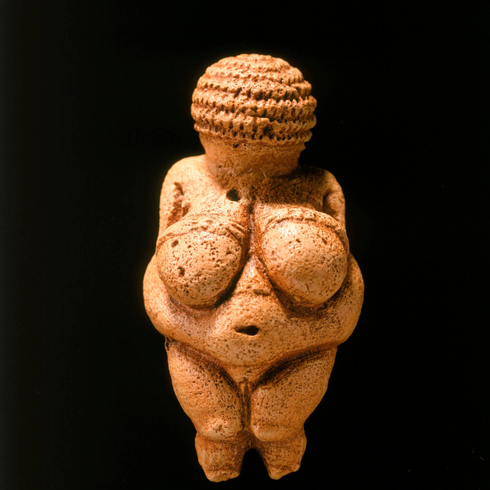



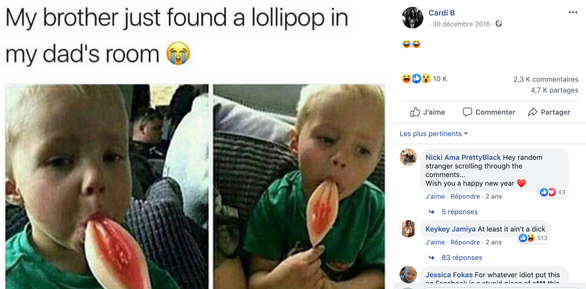





































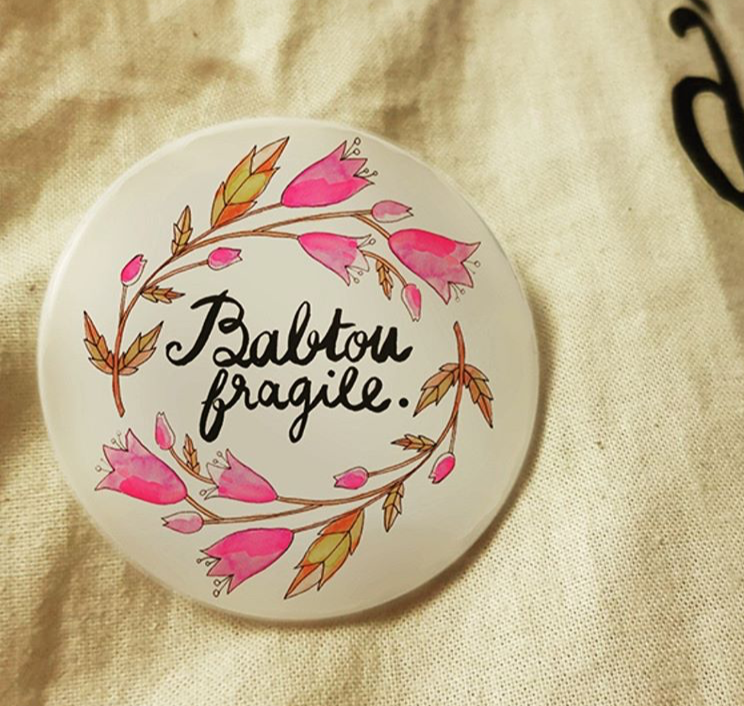


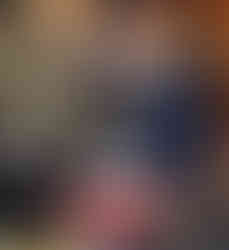












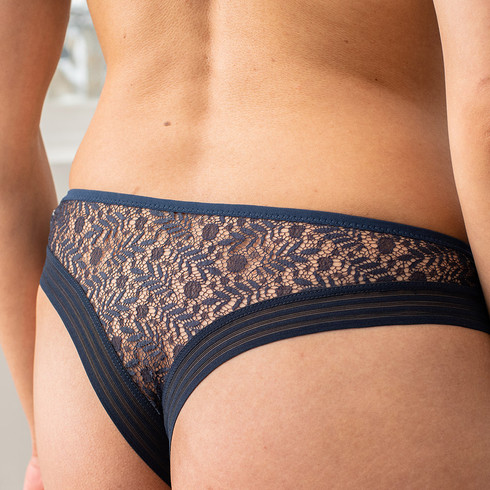










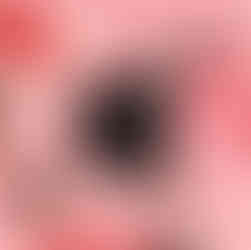














Comments